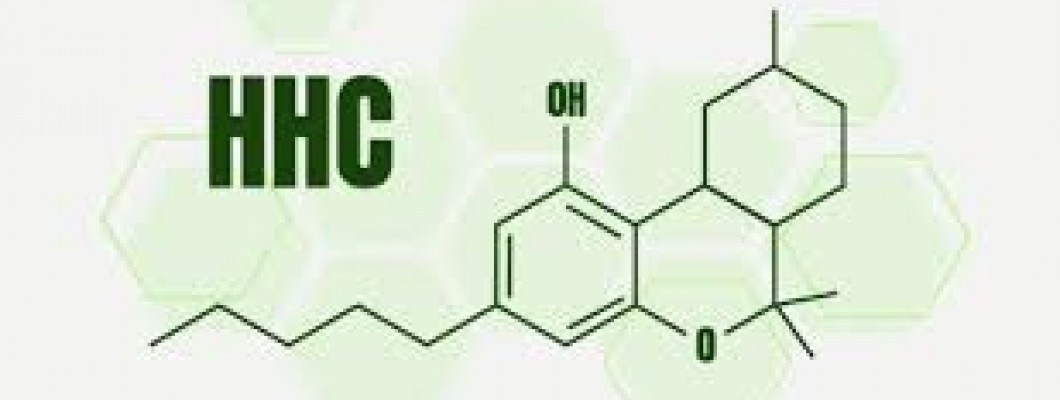
Hexahydrocannabino; in short HHC. Much like CBD and THC
it’s a naturally occurring cannabinoid which is found in very small amounts in
cannabis and hemp plants. Chemically, it’s very similar to THC, but includes
additional hydrogen atoms in its molecular structure.
People have known about HHC since the 1940s, but it’s only
become popular in the cannabis industry in recent years. It’s often compared to
∆-8-THC as another cannabinoid which falls into a legal grey-area in many
countries around the world. Because HHC has only been produced in large volumes
for a few short years, there is little research into its effects and impact on
users.
What effects does HHC have?
HHC is known to be psychoactive, meaning it gets a user
“high”, like ∆-8-THC and ∆-9-THC. Its effects are said to be more relaxing and
calming, without delivering the mood enhancing effects associated with THC.
Users report that this makes HHC efficacious for enhancing sleep, relaxation
and delivering pain relief.
Anecdotally, some people feel no effects from ingesting HHC,
similar to how a small portion of people will feel no effects from ingesting
THC edibles. HHC is known to be metabolised faster by the liver than THC,
meaning the body processes and flushes it out relatively quickly. It is also
known from a 2020 study that metabolisation speed of cannabinoids is affected
by a gene which regulates the enzyme CYP2C9. Simply put, this means that some
people will break down cannabinoids like HHC more easily than others, which
could result in no effects from HHC for some people.
Is HHC safe?
HHC has many of the same side effects as THC. Users report
side effects like anxiety, dry mouth, red eyes and paranoia. It’s possible that
HHC may have long-term side effects which are currently unknown and could be
dangerous; it will likely be many years, if not decades until HHC has been
properly researched.
While HHC does occur naturally in hemp, it is found in
extremely low levels. Commercial HHC products are likely to contain hundreds,
if not thousands of times higher HHC levels than found in hemp, meaning it’s
difficult to predict what effects they will have on a user. This is a great
contrast to cannabidiol (CBD), which is widely regarded to be completely safe,
even at very high doses. If safety is a concern for you, it would be advisable
to stick with well researched and safe cannabinoids like CBD.
Is HHC legal?
While there is no law which specifically mentions HHC, its
use and sale is still prohibited in the UK. This is because of the Psychoactive
Substance Act 2016, which covers novel psychoactive cannabinoids such as HHC,
defining it as a Class B drug - the same as THC.
HHC is broadly legal when in hemp, as it is only present in
very low levels (much the same as THC). At these low levels it is very unlikely
to generate any psychoactive effects when consumed.
In other countries around the world, HHC products may be
legal. In many territories in North America and Europe HHC is either legal or
falls into a grey-zone where users, manufacturers and sellers are unlikely to
face legal consequences.
Is HHC natural?
Yes, HHC naturally occurs in hemp in trace amounts, however
these amounts are so small it is very hard to detect and rarely accurately
measured in the plant. It is more often chemically synthesised to be used in
HHC products.
The exact methods used to produce HHC are not often
discussed and closely guarded by manufacturers (most of which are in the USA),
however we can take an educated guess as to how it’s done.
It’s likely that HHC manufacturers start with CBD. CBD is a
good choice because its price has come down significantly in recent years as
the cannabis industry has matured, making it very useful in many synthetically
produced cannabinoids. The CBD is likely heated and denatured in a process
called “isomerisation” to convert it into ∆-9-THC. As we discussed earlier in
this article, HHC is simply ∆-9-THC with additional hydrogen atoms. By using a
process called “hydrogenation” (the same method used to turn vegetable oil into
margarine) it’s likely that manufacturers are able to add hydrogen to the THC,
turning it into HHC and completing the process.
Simply put, any HHC vape carts, extracts, oils or edibles
are likely to contain no natural HHC, instead relying exclusively on complex
chemical processes in their manufacturing.
What is HHC-O?
HHC is sometimes confused with HHC-O and while they are
similar, it’s important to understand the differences. HHC-O is an entirely
artificial cannabinoid and it’s manufactured by adding acetate to HHC. Users
report that HHC-O is much more potent than HHC, with some suggesting it is even
more potent than THC. As with HHC, HHC-O is illegal under the Psychoactive
Substances Act and is considered as
class B drug in the United Kingdom. Make no mistake, HHC-O is extremely
novel and poorly researched - there’s next to no information on what long term
effects it might have on a user’s health.
Summary
While HHC is an interesting cannabinoid, there are two majorbarriers to its use in the UK:
It is illegal under the Psychoactive Substances Act.
There is little-to-no scientific research on its effects.
It may be years, even decades before these barriers are
overcome and HHC is able to be consumed by people in the UK. For now, legal,
safe cannabinoids like CBD should be the top choice for people trying to enjoy
the benefits of cannabinoids with minimal risks.

6 Comment(s)
Mr contol
Dr sav
Mr bet
Good quality product, How can I buy this?
is there overseas shipping?
What payment do you use?
Leave a Comment